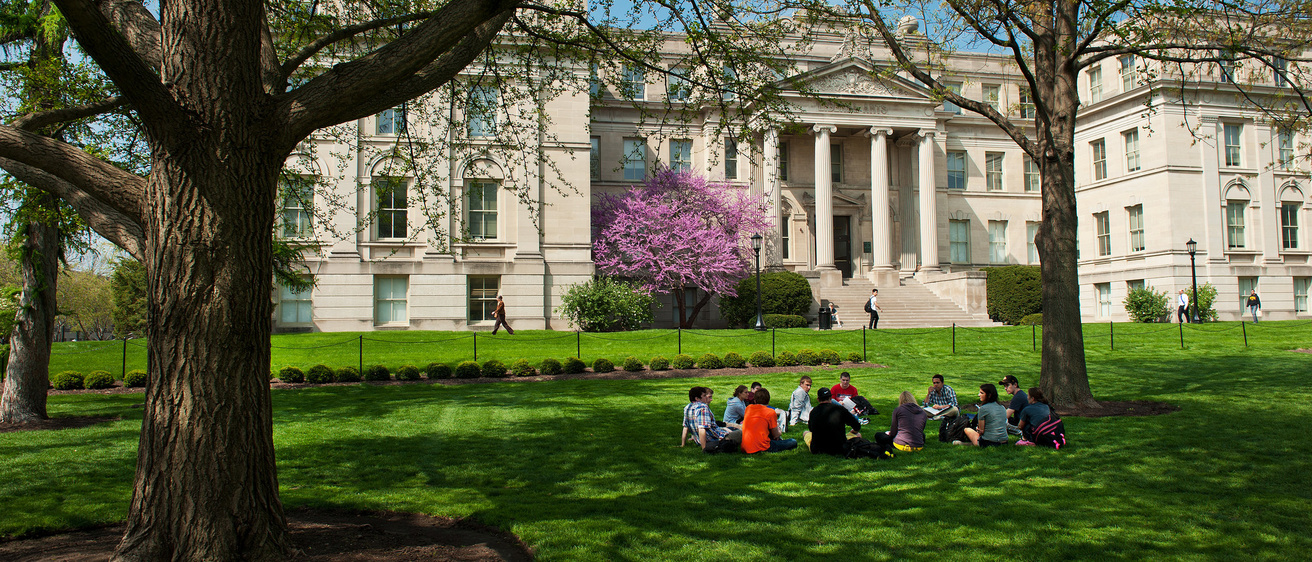
Breadcrumb
Prospective Students
Main navigation
At the University of Iowa, we believe all students should benefit from their learning environment. We welcome more than 5,000 new undergraduate students to campus each year from high schools and colleges around the world, representing diverse learning abilities. The type or level of support the university provides may vary from high school. However, we maintain our commitment to providing support and care for all enrolled students. Below are examples of resources currently available:
- Student Care & Assistance– provides assistance to any UI student experiencing challenges during their college career. This office can coordinate with various professionals across campus to best support concerns (e.g. family emergency, hospitalization, unexpected events) that may arise during one’s time on campus.
- Academic Advising Center (AAC)–dedicated to providing academic advising to all entering College of Liberal Arts and Sciences (CLAS) first-year students, some transfer students, pre-professional students, and non-degree students. Advisors in the AAC provide intensive academic support through regular contact with students they advise. The AAC can also assist in exploring student’s academic interests and developing plans based on their goals.
- Student Disability Services (SDS)–strives to ensure a fair learning environment where students are able to succeed based on their own efforts and initiative. To do so, SDS coordinates accommodations for eligible students under federal legislation. The process for obtaining accommodation and examples of what can be provided can be found here.
- University Counseling Services (UCS)– provides support and mental health services to the UI campus community. The UCS employs psychologists and social workers who guide students through strategies for coping with challenging life situations and emotional experiences to enhance relationships with classmates and teachers and to improve personal and academic life. The UCS also provides brief consultation on an emergent basis and have a limited number of same-day appointments available should a student be in distress and require additional more immediate support.
- Academic Support and Retention (AS&R)- coordinates campus-wide programs to facilitate the academic success of all undergraduate students. AS&R also includes the Academic Resource Centerwhich oversees course-specific Supplemental Instruction.
- Pomerantz Career Center– a team of career advisors and peer advisors are available to assist students in exploring and preparing for career opportunities. To do so, staff help discover interests, skills, strengths, and values to determine what students can do after graduation. All students are welcome to contact the career center to discuss ways to connect their interests to their career.
- University Housing & Dining (UH&D)– at Iowa, 94% of new incoming first-year students choose to live on campus. The residence halls provide a space to make friends and connect with the campus community. Plus, choosing to live on campus allows you to be closer to classes, libraries, dining options, and anything else you choose to do as a student. Learn more about the residence hall experience by exploring the variety of residence halls available here.
- Leadership and Engagement – an office to foster growth and leadership in students and their organizations by providing arts and entertainment, leadership and civic engagement programs, and student activities. A list of ways to become more involved on campus can be found here.
- UI Students for Disability Advocacy & Awareness– a student organization who promotes and advocates for a supportive and inclusive environment for students with disabilities on campus.
For students who have accepted their admission to the University, we look forward to welcoming you at orientation! Through this experience, students will have the opportunity to meet future classmates, navigate campus, learn more about University expectations, and register for classes. The orientation experience should be exciting for students, although it is common for students to experience a variety of other emotions during their time on campus. The orientation schedule and structure looks different if you are a first-year student or transfer student. Below are helpful items to consider including in your agenda:
First Year Student Orientation Program
- Orientation for incoming first year students is a day and a half long experience and includes an opportunity for students to spend the night in an on-campus residence hall.
- The program includes large group sessions (audiences of 350-500 people) as well as smaller breakout sessions (10-25 students).
- During orientation, students will navigate campus by foot, led by a trained peer leader. Walking distances may be about 10 minutes by foot.
Action items to consider while you are on campus for first year orientation might include:
- Attend the Student Disability Services (SDS) session offered on Day 2 of a 2-day orientation program for first year students. This session is designed for you and your family to meet members of the SDS team, learn about services offered, and discuss accommodations.
- Discuss your needs or concerns with your academic advisor.
Transfer Student Orientation Program
- Orientation for incoming transfer students is a day long experience.
- The program includes large group sessions (audiences of 100-130 people) as well as smaller breakout sessions (10-25 students).
- During orientation, students will navigate campus by foot, led by a trained peer leader. Walking distances may be about 10 minutes by foot. Students may also need to locate an advising office on campus, which may require walking longer distances or navigating campus via the campus bus system.
Action items to consider while you are on campus for transfer orientation might include:
- Consider setting up a meeting with SDS while you are on campus for orientation. Their office location is not far from where the majority of orientation programming takes place.
- Discuss your needs or concerns with your academic advisor.